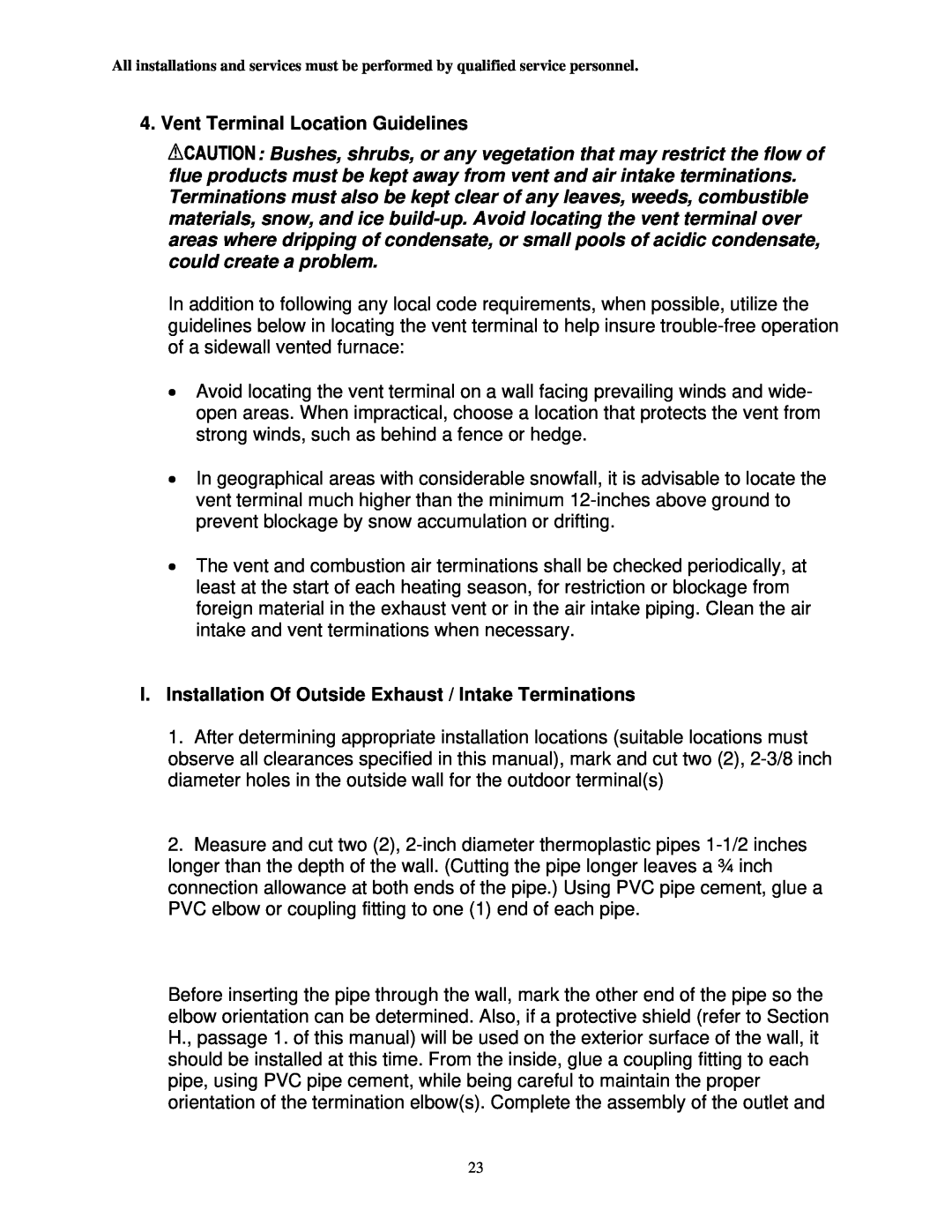All installations and services must be performed by qualified service personnel.
4. Vent Terminal Location Guidelines
![]()
![]()
![]()
![]()
![]()
![]()
![]()
![]()
![]()
![]()
![]()
![]()
![]()
![]()
![]()
![]() : Bushes, shrubs, or any vegetation that may restrict the flow of flue products must be kept away from vent and air intake terminations. Terminations must also be kept clear of any leaves, weeds, combustible materials, snow, and ice
: Bushes, shrubs, or any vegetation that may restrict the flow of flue products must be kept away from vent and air intake terminations. Terminations must also be kept clear of any leaves, weeds, combustible materials, snow, and ice
In addition to following any local code requirements, when possible, utilize the guidelines below in locating the vent terminal to help insure
•Avoid locating the vent terminal on a wall facing prevailing winds and wide- open areas. When impractical, choose a location that protects the vent from strong winds, such as behind a fence or hedge.
•In geographical areas with considerable snowfall, it is advisable to locate the vent terminal much higher than the minimum
•The vent and combustion air terminations shall be checked periodically, at least at the start of each heating season, for restriction or blockage from foreign material in the exhaust vent or in the air intake piping. Clean the air intake and vent terminations when necessary.
I.Installation Of Outside Exhaust / Intake Terminations
1.After determining appropriate installation locations (suitable locations must observe all clearances specified in this manual), mark and cut two (2),
2.Measure and cut two (2),
Before inserting the pipe through the wall, mark the other end of the pipe so the elbow orientation can be determined. Also, if a protective shield (refer to Section H., passage 1. of this manual) will be used on the exterior surface of the wall, it should be installed at this time. From the inside, glue a coupling fitting to each pipe, using PVC pipe cement, while being careful to maintain the proper orientation of the termination elbow(s). Complete the assembly of the outlet and
23
